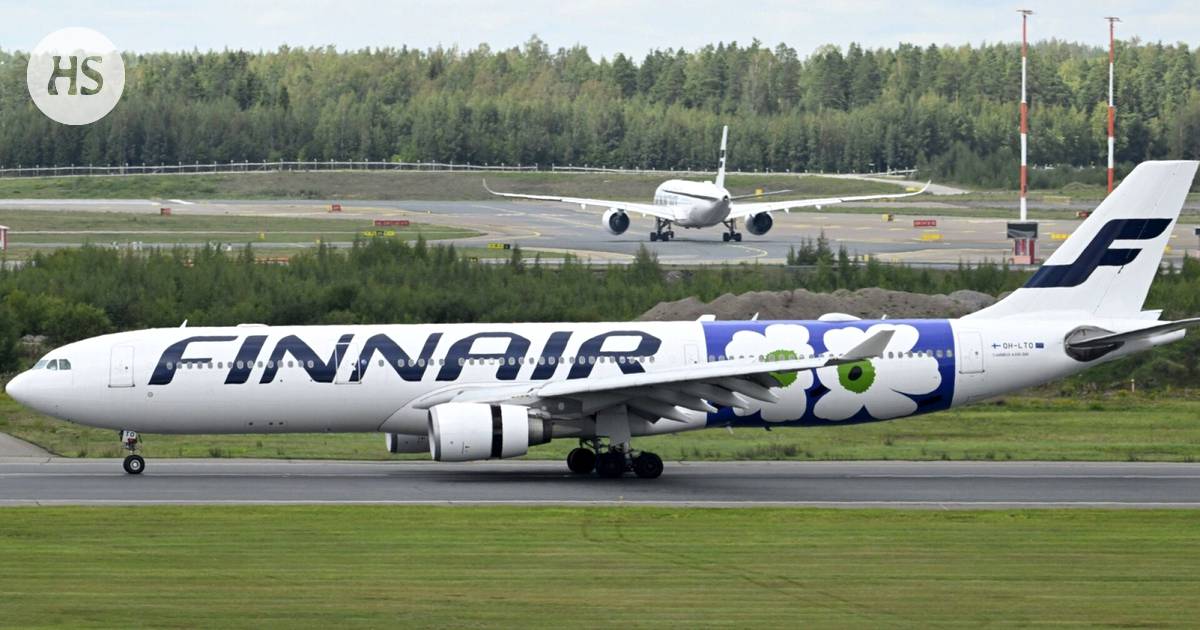Finnair estimates that its unit revenues and cash flow remained at a good level, but the strikes put a strain on turnover and profit.
Carrier Finnair’s net sales in January–March decreased by 1.9 percent from the comparison period and was 681.5 million euros.
The comparable operating result was a loss of EUR 1.6 million. The operating loss more than doubled from 8.3 million euros in the comparison period to 17.2 million euros.
January–March is traditionally Finnair’s worst quarter.
In its interim report, Finnair estimates that its “unit revenues and operational cash flow remained at a good level. The strikes put a strain on turnover and profit”.
The unit cost per offered passenger kilometer decreased by 4.3 percent and was 7.77 cents.
Earnings per share were EUR 0.15 in loss.
At its annual general meeting in March, the company decided to merge the shares so that one hundred of the company’s old shares equals one of the company’s new shares. The adjusted comparative figure compared to a year ago showed a loss of EUR 0.09 per share.
Finnair the number of passengers in the first quarter decreased by one hundred thousand passengers from a year ago to 2.5 million. In percentage terms, the decrease was 1.9.
The passenger kilometers offered increased by 4.4 percent.
The passenger occupancy rate, which describes the filling of airplane seats, decreased by three percentage points from the comparison period to 72.1 percent.
At Tuesday’s media conference, Finnair said that especially on flights to Thailand, the utilization rates were very good.
Finnair stated in its guidance that international air traffic is expected to continue to grow in 2024.
As risks, Finnair listed the effects of inflation and increased interest rates, as well as uncertainties caused by international conflicts and world political instability. They may affect the demand for air travel and cargo.
Finnair plans to increase its total capacity by more than 10 percent in 2024. The estimate includes the leasing of planes and crews. Growth is mainly focused on Asia and Europe.
Finnair’s turnover is expected to grow somewhat slower than capacity in 2024.
Finnair interim CEO Jaakko Schildt says in the interim report that the decrease in turnover was due to “political strikes in Finland, normalized revenue from unused tickets and lower freight prices, even though additional sales and turnover of travel services increased”.
Operating expenses remained at the level of the comparison period “thanks to strict expense monitoring and lower fuel prices”, Schildt estimated in the press release.
“Travel demand remained good during the review period and customers booked trips especially for the summer. With the successful pricing of airline tickets, our unit revenues remained at a strong level, although they decreased slightly from the comparison period”, Schildt estimated.
At the media event Schildt described the first quarter as very exceptional in many ways.
“An exceptional number of snow days and weather conditions.”
Because of the strikes, Finnair had to cancel almost all of its flights over the course of two days. According to Schildt, the political strike had some effect on fuel deliveries, but “we managed better”.
Schildt admitted at the press conference that after six positive quarters, the loss result “does not cause jubilation”.
However, he reminded that January–March is rarely profitable for Finnair. As a success, Schildt emphasized that Finnair succeeded in cost savings even though capacity was increased.
Finnair changed its Finnair Plus loyalty program in March so that the points were converted into Avios loyalty currency based on the purchase amount.
Last summer, Finnair also made a ticket reform.
According to the company, customer satisfaction has remained good.
